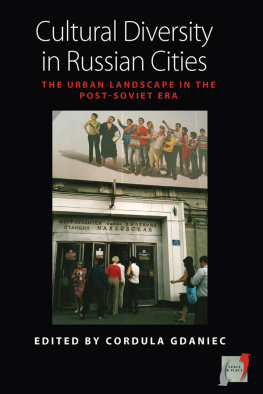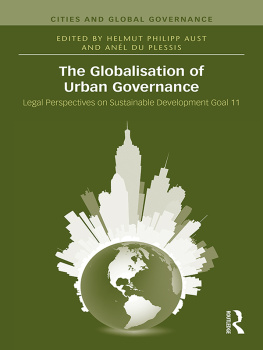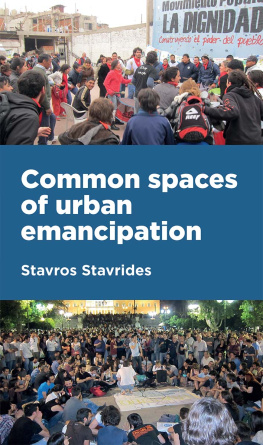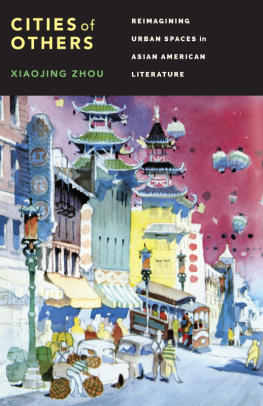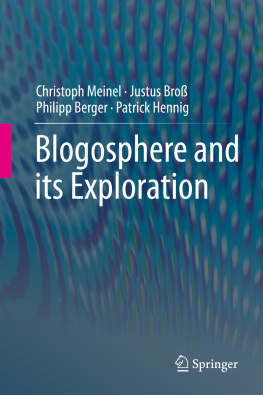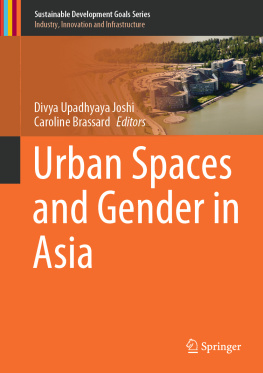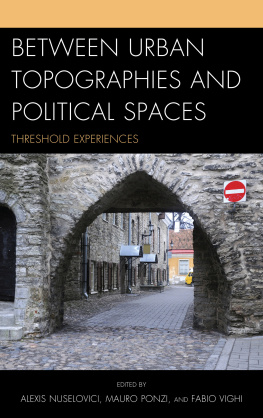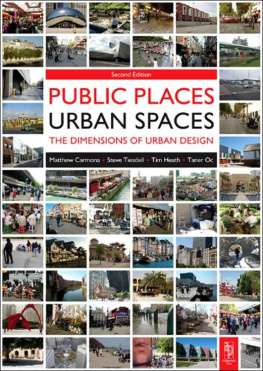Urban Spaces and Lifestyles in Central Asia and Beyond
This volume contributes new insights to the scientific debate on post-Socialist urbanities. Based on ethnographic research in cities of Central Asia, the Caucasus and Russia, its contributions scrutinise the social production of diverse public, parochial and private spaces in conjunction with patterns of everyday encounter, identification, consumption and narration. The analyses extend from the transnational entanglements between a Dushanbe bazaar and hyper-modern Dubai to the micro-level hierarchies in a flat-sharing community in Astana. They explore competing notions of urban belonging and aesthetics in Yerevan, local perception of Central Asian Muslims in Kazan and Saint Petersburg, and more, providing a rich tapestry of academic study. Taken together, the case studies address cities as gateways to new worlds (both local and global), discuss ambitions of states at taming urban landscapes, and illustrate current trends of economic, religious and other lifestyles in urban Central Asia and beyond. This book was originally published as a special issue of Central Asian Survey.
Philipp Schrder is a lecturer and postdoctoral researcher at the Institute for Asian and African Studies, Humboldt-Universitt zu Berlin, Germany. His teaching and research focuses on urban spaces and mobilities, identities and integration, youth cultures and political economies in Central Asia, Russia and China.
ThirdWorlds
Edited by Shahid Qadir, University of London, UK
ThirdWorlds will focus on the political economy, development and cultures of those parts of the world that have experienced the most political, social, and economic upheaval, and which have faced the greatest challenges of the postcolonial world under globalisation: poverty, displacement and diaspora, environmental degradation, human and civil rights abuses, war, hunger, and disease.
ThirdWorlds serves as a signifier of oppositional emerging economies and cultures ranging from Africa, Asia, Latin America, Middle East, and even those Souths within a larger perceived North, such as the U.S. South and Mediterranean Europe. The study of these otherwise disparate and discontinuous areas, known collectively as the Global South, demonstrates that as globalisation pervades the planet, the south, as a synonym for subalterity, also transcends geographical and ideological frontier.
For a complete list of titles in this series, please visit https://www.routledge.com/ series/TWQ
Recent titles in the series include:
The Green Economy in the Global South
Edited by Stefano Ponte and Daniel Brockington
Food Sovereignty
Convergence and Contradictions, Condition and Challenges
Edited by Eric Holt-Gimnez, Alberto Alonso-Fradejas, Todd Holmes and Martha Jane Robbins
The International Politics of Ebola
Edited by Anne Roemer-Mahler and Simon Rushton
Rising Powers and South-South Cooperation
Edited by Kevin Gray and Barry K. Gills
The Local Turn in Peacebuilding
The Liberal Peace Challenged
Edited by Joakim jendal, Isabell Schierenbeck and Caroline Hughes
Chinas Contingencies and Globalization
Edited by Changgang Guo, Liu Debin and Jan Nederveen Pieterse
The Power of Human Rights/The Human Rights of Power
Edited by Louiza Odysseos and Anna Selmeczi
Class Dynamics of Development
Edited by Jonathan Pattenden, Liam Campling, Satoshi Miyamura and Benjamin Selwyn
Offshore Central Asia
Edited by John Heathershaw and Alexander Cooley
Third World Approaches to International Law
Edited by Amar Bhatia, Usha Natarajan, John Reynolds and Sujith Xavier
Aid to Support Fragile States
The Challenge of Chronic State Weakness
Edited by Rachel M. Gisselquist
Urban Spaces and Lifestyles in Central Asia and Beyond
This volume contributes new insights to the scientific debate on post-Socialist urbanities. Based on ethnographic research in cities of Central Asia, the Caucasus and Russia, its contributions scrutinise the social production of diverse public, parochial and private spaces in conjunction with patterns of everyday encounter, identification, consumption and narration. The analyses extend from the transnational entanglements between a Dushanbe bazaar and hyper-modern Dubai to the micro-level hierarchies in a flat-sharing community in Astana. They explore competing notions of urban belonging and aesthetics in Yerevan, local perception of Central Asian Muslims in Kazan and Saint Petersburg, and more, providing a rich tapestry of academic study. Taken together, the case studies address cities as gateways to new worlds (both local and global), discuss ambitions of states at taming urban landscapes, and illustrate current trends of economic, religious and other lifestyles in urban Central Asia and beyond. This book was originally published as a special issue of Central Asian Survey.
Philipp Schrder is a lecturer and postdoctoral researcher at the Institute for Asian and African Studies, Humboldt-Universitt zu Berlin, Germany. His teaching and research focuses on urban spaces and mobilities, identities and integration, youth cultures and political economies in Central Asia, Russia and China.
First published 2017
by Routledge
2 Park Square, Milton Park, Abingdon, Oxon, OX14 4RN, UK
and by Routledge
711 Third Avenue, New York, NY 10017, USA
Routledge is an imprint of the Taylor & Francis Group, an informa business
2017 Southseries Inc.
All rights reserved. No part of this book may be reprinted or reproduced or utilised in any form or by any electronic, mechanical, or other means, now known or hereafter invented, including photocopying and recording, or in any information storage or retrieval system, without permission in writing from the publishers.
Trademark notice: Product or corporate names may be trademarks or registered trademarks, and are used only for identification and explanation without intent to infringe.
British Library Cataloguing in Publication Data
A catalogue record for this book is available from the British Library
ISBN 13: 978-1-138-74319-9
Typeset in Myriad Pro
by RefineCatch Limited, Bungay, Suffolk
Publishers Note
The publisher accepts responsibility for any inconsistencies that may have arisen during the conversion of this book from journal articles to book chapters, namely the possible inclusion of journal terminology.
Disclaimer
Every effort has been made to contact copyright holders for their permission to reprint material in this book. The publishers would be grateful to hear from any copyright holder who is not here acknowledged and will undertake to rectify any errors or omissions in future editions of this book.
Contents




